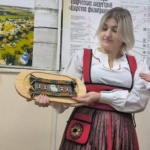
The forthcoming World Public Assembly will place spiritual and cultural values at the heart of its agenda, with a major round table on “Traditions as a Resource for the Future” set to draw participants from across nine countries.
The round table, one of the central sessions under the theme “Spiritual and Cultural Unity and Service to Values”, will focus on preserving local cultural heritage through the transmission of symbols and territorial identities. The event will be held in Moscow, Russia.
Leaders in territorial development, non-governmental organisations, folk-art masters, and community activists from both rural and urban areas are expected to engage in dialogue on revitalising spaces through creative and cultural expression.
The event will bring together high-profile figures such as Anar Izden, Chairman of the Alliance of Non-Governmental Organisations in Kazakhstan’s Kyzylorda region; Indian textile expert and founder of the Craft Design Society, Asif Shaikh; Carolina Gaspar, Director of the Mexico-Russia Cultural Centre; representatives of the International World Council of Crafts (UAE); and Russian cultural leaders including Sergey Lisin and Elmira Samokhina.
Invitations have also been extended to Serbian film director Emir Kusturica, renowned for creating the micro-city of Kustendorf. Experts from Portugal, Tajikistan and Turkmenistan are also anticipated.
Central to the discussions will be how to harness creative industries, including folk arts and crafts, as engines for community resilience and cultural preservation.
One initiative to be showcased is the International Creative Action “Belt of Peace”, launched in July 2024. The project weaves together craft fragments from different regions to form a symbolic belt representing cultural codes and traditions.
Over 50 pieces have already been contributed, each reflecting a unique heritage and story.
Participants will also be introduced to innovative approaches in “trust-based communication”, designed to build consensus around shared values.
According to moderators Galina Tsyshchuk and Elena Didenko from the Centre for Social Technologies “Dealing with Meaning”, the round table’s philosophy emphasises cultural codes as anchors of identity:
“Understanding cultural codes gives individuals, particularly the youth, a sense of belonging to history and traditions, and inspires love for the homeland. The land becomes an inexhaustible source of creativity and mastery,” they noted.
The World Public Assembly positions itself as a platform for exchange, partnership, and the renewal of cultural legacies, seeking to reimagine traditions not as relics of the past but as resources for the future.
